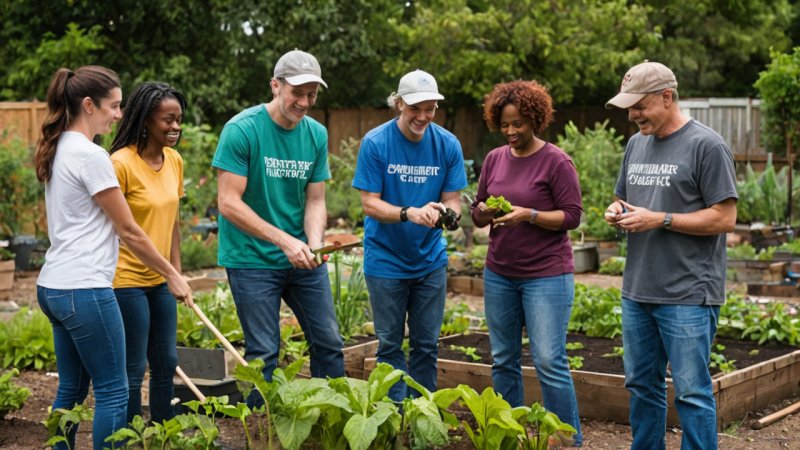Introduction
In today's fast-paced world, the importance of mental health and strong community connections cannot be overstated. This article will guide you through the ways volunteering can significantly enhance your mental well-being while also fostering deeper ties within your community. You will learn about the psychological benefits of volunteering, discover how to find the right opportunity for you, and understand the steps to get involved.
Step 1: Understand the Psychological Benefits of Volunteering
Before diving into volunteering, it's essential to understand how it can positively impact your mental health. Engaging in volunteer activities can lead to:
- Increased Happiness: Helping others often leads to a sense of fulfillment and joy.
- Reduced Stress: Volunteering can act as a natural stress reliever, providing a break from your personal worries.
- Enhanced Self-Esteem: Contributing to a cause can boost your confidence and self-worth.
- Improved Social Connections: Volunteering allows you to meet new people and form meaningful relationships.
Step 2: Identify Your Interests and Skills
To find the right volunteering opportunity, start by assessing your interests and skills. Consider the following questions:
- What causes are you passionate about? (e.g., education, health, environment)
- What skills do you possess that can benefit others? (e.g., teaching, organizing, writing)
- How much time can you realistically dedicate to volunteering?
By answering these questions, you can narrow down your options and find a role that resonates with you.
Step 3: Research Volunteer Opportunities
Once you have a clear understanding of your interests and skills, it's time to explore available volunteer opportunities. Here are some tips for effective research:
- Online Platforms: Websites like VolunteerMatch, Idealist, and local community boards can help you find opportunities tailored to your interests.
- Local Organizations: Reach out to local non-profits, schools, or community centers to inquire about their volunteering needs.
- Social Media: Follow organizations on social media to stay updated on upcoming events and needs.
Step 4: Make the Commitment
Once you’ve found a suitable opportunity, it’s time to make a commitment. Here’s how to ensure you stay dedicated:
- Set Clear Goals: Define what you hope to achieve through your volunteering experience.
- Schedule Regular Time: Allocate specific time slots in your calendar for volunteering to establish a routine.
- Stay Open-minded: Be prepared to adapt and learn as you engage with different community members and activities.
Step 5: Reflect on Your Experience
After you’ve been volunteering for a while, take time to reflect on your experiences. Consider the following:
- Emotional Impact: How do you feel after volunteering? Are you experiencing increased happiness or fulfillment?
- Community Connections: Have you formed new relationships or strengthened existing ones?
- Personal Growth: What skills have you developed or improved through your volunteer work?
Step 6: Share Your Experience
Sharing your volunteering experience can inspire others to get involved. Here are some ways to share:
- Social Media: Post about your volunteering journey on platforms like Facebook, Twitter, or Instagram.
- Community Events: Participate in local events and share your story to encourage others to volunteer.
- Blogging: Consider writing a blog post or article about your experience to reach a wider audience.
Conclusion
Volunteering is a powerful way to improve your mental health and strengthen community ties. By understanding the psychological benefits, identifying your interests, researching opportunities, making a commitment, reflecting on your experiences, and sharing your journey, you can create a positive impact on both yourself and your community. Remember, every small effort counts, and your involvement can inspire others to join you in making a difference.






